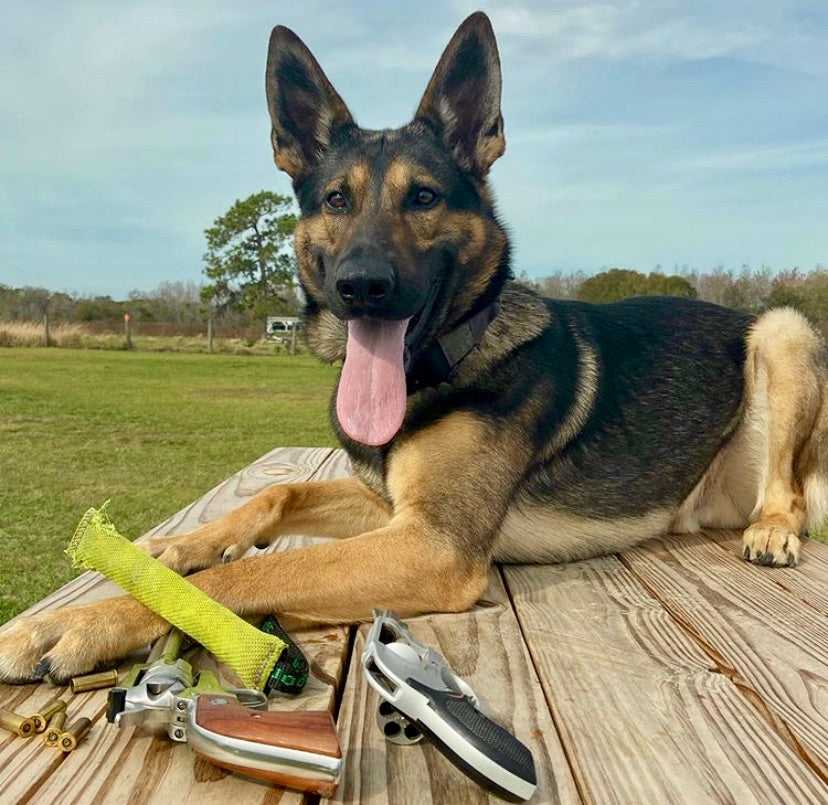Premier Dog Training Programs Designed for Real-World Success
Dark Shadows Canine (DSC)
At Dark Shadows Canine, we go beyond basic obedience — we help dogs become calm, confident, and reliable companions. Whether you’re raising a puppy, tackling behavioral issues, or seeking elite off-leash control, our immersive Board and Train programs are designed to produce lasting results and strengthen the bond between you and your dog.
Programs!

Board & Train Programs
Board & Train Programs
Your dog lives with a professional trainer and receives daily hands-on instruction in real-world environments. We also offer flexible transport options, including air cargo, ground transport, or private travel with a DSC trainer.
Puppy Kindergarten – 14 Days
For puppies 4 months and under
Our Puppy Kindergarten program lays the groundwork for a well-mannered adult dog. In a fun, structured environment, your puppy will be introduced to foundational commands such as:
- sit
- recall
- place
- lbegining stages of leash walking
This early training helps prevent problem behaviors and builds confidence from day one.
Cost- $2,500
Discounts are available for Military, Law Enforcement, First Responders, and Teachers. We appreciate your service and are proud to support our community.
For more information or to discuss the best training program for your dog, please contact Jacob directly at (813) 500-2088 or email us at DSTCD@outlook.com.
4-Week Board & Train – On-Leash Obedience
Designed for owners who want complete on-leash control, this program introduces your dog to obedience under structure and distraction. Your dog will learn :
- sit-stay
- down-stay
- recall
- heeling with automatic sit
- place command
This training also includes exposure to various environments to build social skills and confidence.
Cost-$4,500
Discounts are available for Military, Law Enforcement, First Responders, and Teachers. We appreciate your service and are proud to support our community.
For more information or to discuss the best training program for your dog, please contact Jacob directly at (813) 500-2088 or email us at DSTCD@outlook.com.
6-Week Board & Train – Off-Leash Obedience
This advanced program teaches your dog to obey reliably both on and off-leash. We introduce higher levels of distraction and environmental challenges to ensure obedience holds in any situation. The result is a well-rounded dog that responds quickly and confidently, even at a distance.
Cost-$6,500
Discounts are available for Military, Law Enforcement, First Responders, and Teachers. We appreciate your service and are proud to support our community.
For more information or to discuss the best training program for your dog, please contact Jacob directly at (813) 500-2088 or email us at DSTCD@outlook.com.
Training for Aggressive Dogs - on-leash or off-leash
At Dark Shadows Canine, we specialize in working with dogs of all temperaments—including those exhibiting aggression toward people, other dogs, or environmental triggers. Aggressive behavior requires additional time, structure, and hands-on management to ensure safe and effective training.
For dogs with aggression issues, our standard programs are extended to allow proper desensitization, confidence building, and behavior modification.
If your dog is enrolled in our On-Leash Obedience program and displays aggressive behavior, the program will be extended to 5 weeks total at a cost of $5,500.
If you choose our Advanced Off-Leash Obedience program for an aggressive dog, the program will be extended to 8 weeks total at a cost of $8,500.
This additional time ensures we can address the root of the behavior, work through real-world triggers, and create lasting behavioral change. Our goal is not only to train your dog, but to help restore trust, control, and peace of mind—for both you and your dog.
Discounts are available for Military, Law Enforcement, First Responders, and Teachers. We appreciate your service and are proud to support our community.
For more information or to discuss the best training program for your dog, please contact Jacob directly at (813) 500-2088 or email us at DSTCD@outlook.com.
Why Choose DSC?
For over 30 years, our training philosophy has focused on real-world results, not gimmicks or shortcuts. We customize each training plan to your dog’s individual needs — no cookie-cutter programs here. Whether you’re dealing with reactivity, anxiety, or just want the best start for your puppy, we deliver:
✅ Certified, experienced trainers
✅ In-home training immersion
✅ Real-life exposure and socialization
✅ Training that lasts a lifetime
✅ Guaranteed obedience — on and off-leash
90% of our clients choose our Board and Train programs as their most effective training option — and the results speak for themselves.

